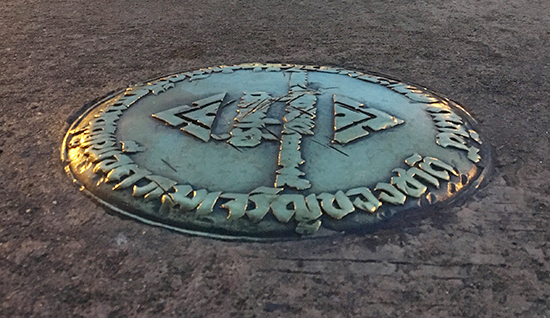Bangkok, May 3, 2017–Thailand’s ruling military junta banned a panel discussion event scheduled for today by the Foreign Correspondents’ Club of Thailand, marking the latest act of harassment against the club under military rule.
The event, titled “Memories of 1932–the mystery of Thailand’s missing plaque,” was cancelled after Bangkok’s Lumpini police station sent a letter to the FCCT that said the event “posed a threat to national security” and could “be used by unscrupulous individuals to stir up disorder,” according to an FCCT statement on the cancellation.
Police told the FCCT in a follow up phone call that the ban had been ordered by “relevant officials.” The FCCT statement said it understood the cancellation was ordered by the military National Council for Peace and Order and that “we have no choice but to comply.”
The FCCT said it would instead stage a discussion to mark World Press Freedom day on the state of media freedom in Thailand, according to news reports.
The banned event would have addressed potentially sensitive issues related to Thailand’s monarchy, a taboo topic under local laws. The missing plaque in question, which was recently replaced with another bearing a pro-monarchy message, commemorated the 1932 revolution that overthrew absolute monarchy and first established democratic rule.
“Thailand’s ruling junta claims it will soon restore democracy, yet it continues to ban and censor news-oriented public events,” said Shawn Crispin, CPJ’s senior Southeast Asia representative. “We call on the regime to stop harassing the Foreign Correspondents Club of Thailand and allow it to resume its long-time role as an open and free forum for vital discussion and debate.”
Junta officials have banned at least three previous FCCT events since the military seized power in a May 2014 coup. In June 2015, the junta banned a FCCT event scheduled to discuss the country’s lѐse majesté law, which allows for 15-year prison terms for public criticism of the Thai royal family. At least one Thai journalist is currently imprisoned under the law, according to CPJ research.
Plainclothes officials dispatched to monitor FCCT events often record the proceedings and take pictures of panelists and attending journalists, FCCT executive board members told CPJ. Officials previously threatened to deploy soldiers to seal off access to the FCCT’s office in central Bangkok if banned events were held as scheduled, according to an FCCT statement.
